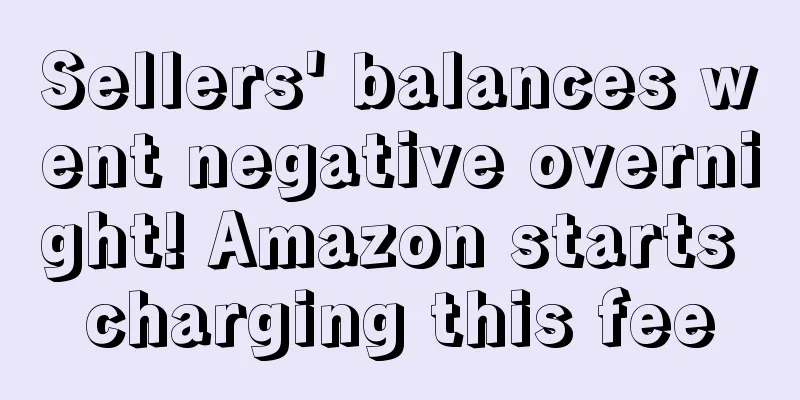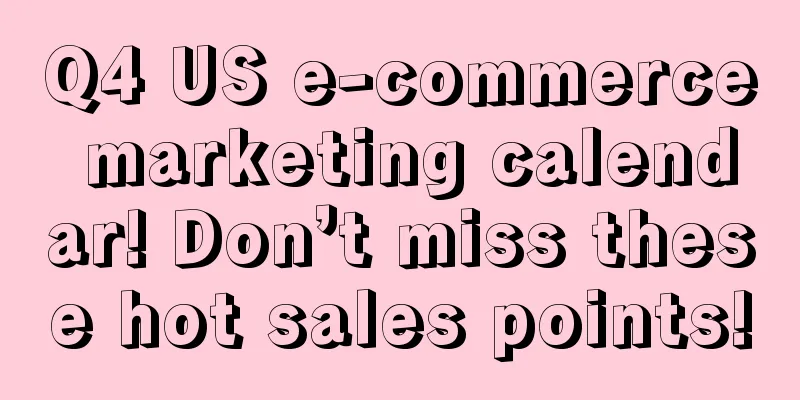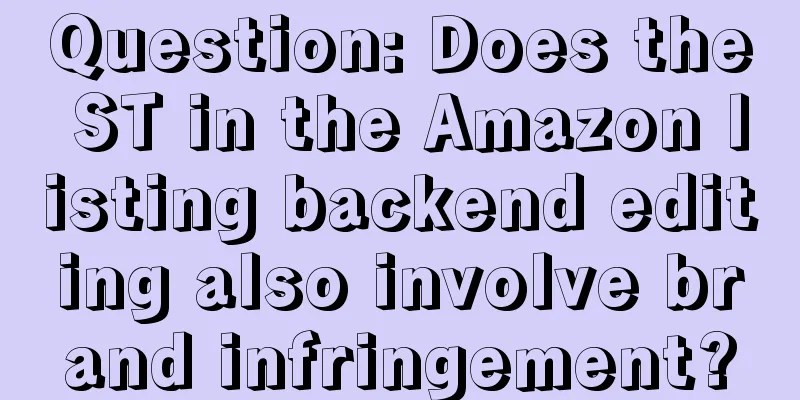Unveiling the secrets of Amazon advertising: Can brand keywords be used in this way?

|
Branded keywords are keywords that include your brand or company name. For example, "basketball shoes" is a generic keyword, while "Nike basketball shoes" is a branded keyword. Brand Keywords You could even take it a step further and create a third campaign that includes your competitor’s branded keywords. Why brand keywords are becoming more and more important shortcoming If you set ads based on keywords, your ad campaigns may suddenly increase. Previously, a product may have four ad campaigns, but now, if you set ads based on keywords, each ad campaign will have several more ad groups.
Recommended Reading |
<<: Want to take a vacation but must respond to buyers? Here are three solutions
>>: After reading these 10 pieces of data, you will know why Amazon is so popular...
Recommend
Launching a global brand campaign! Wish’s road to brand advancement
It is learned that Wish recently announced the lau...
What is AuthoritySpy? AuthoritySpy Review
AuthoritySpy is a great link building SEO tool tha...
All sellers on the US site have 0 orders! Is there a bug in the Amazon system again?
▶ Video account attention cross-border navigation ...
Foreign trade B2B seller acquisition platform "Cross-border Magic Cube" received tens of millions of yuan in Pre-A round financing, and the number of registered companies has exceeded 100,000 | Hard Krypton first release
Hard Krypton learned that recently, the foreign tr...
Amazon adds new advertising features!
This weekend is the year-end celebration Black Fr...
Year-end thoughts: This year, our team of 8 has achieved sales of 40 million yuan, with a profit of about 4 million yuan. I have the following thoughts and would like to ask the experts for advice...
Anonymous user My C position History always repeat...
US online retail sales to reach $1.2 trillion in 2024, mobile shopping continues to grow
It is learned that recently, according to foreign ...
Amazon will remove this feature next month!
A few years ago, there were many ways to do self-...
Collapse! China-US negotiations usher in the worst ending
Yesterday, we just refuted and analyzed the news t...
The increase may reach 100%, cross-border freight prices have increased again!
In February and March of this year, foreign custom...
The product is selling well and has opened more than 700 Amazon stores. A monthly salary of 120,000 yuan is offered to recruit ChatGPT talents.
With the iterative upgrade of ChatGPT and the grow...
What is icancycling? icancycling review
icancycling is located in Shenzhen and is one of t...
How to promote Amazon outside the site?
Many friends who have just started to do Amazon b...
33% of Americans shop on TikTok Shop, with Generation Z becoming the main consumer group
Recently, according to a survey by e-commerce mark...
What is ashateahouse? ashateahouse review
ashateahouse is a company founded by David and Dia...









